Home Farm MK
Adopt A Bee - Honeybee Adoption
Adopt A Bee - Honeybee Adoption
Couldn't load pickup availability
Each bee plays an incredibly important role in the colony from the day they are born - but we think they’re much more than a number.
Help us show the bees some appreciation by adopting and naming a bee in our growing apiary!
Why sponsor a bee?
Our symbolic adoption scheme helps us care for our bees and grow the bee population by helping to fund:
-
Hive repairs and regular maintenance
-
Planting and maintenance of wildflower areas
-
Supplemental food and treatments if required
-
Equipment needed to safely inspect the hives and care for the bees
How does it work?
Once you’re chosen which bee you would like to adopt, select your preferred certificate style and head to the checkout.
Once you’re there, let us know the name of your bee and the email address you’d like the named certificate sent to (this can be your own email or someone else’s if you’re buying as a gift).
Your personalised adoption certificate will be sent by email within 24 working hours, and you will also receive regular updates on our hives as well as interesting information about bees and the important work they do.
Should I choose a Drone, Worker or a Queen?
-
Drones: Drones are the only makes in the hive, and their only (but very important) job is to mate with a Queen so that she can lay eggs to grow the size of the colony. Drones don’t have a sting, and can’t gather nectar or pollen, so rely on the worker bees to feed them.
-
Workers: The majority of the bees in a hive are worker bees, and they work as a team to do everything from looking after the Queen and the drones, nursing the young, cleaning the hive, foraging for nectar and pollen, defending the hive from predators and making the all important honey. Each worker bee does each of these roles at different stages of their lives, starting with housekeeping duties and ending with collecting nectar and pollen.
-
Queen: The Queen bee is incredibly important as she is the only bee in the hive that can lay fertilised eggs, so is pivotal to the survival of the colony. She is larger than the other bees and produces pheromones to communicate with the workers and help them to work together.
Share
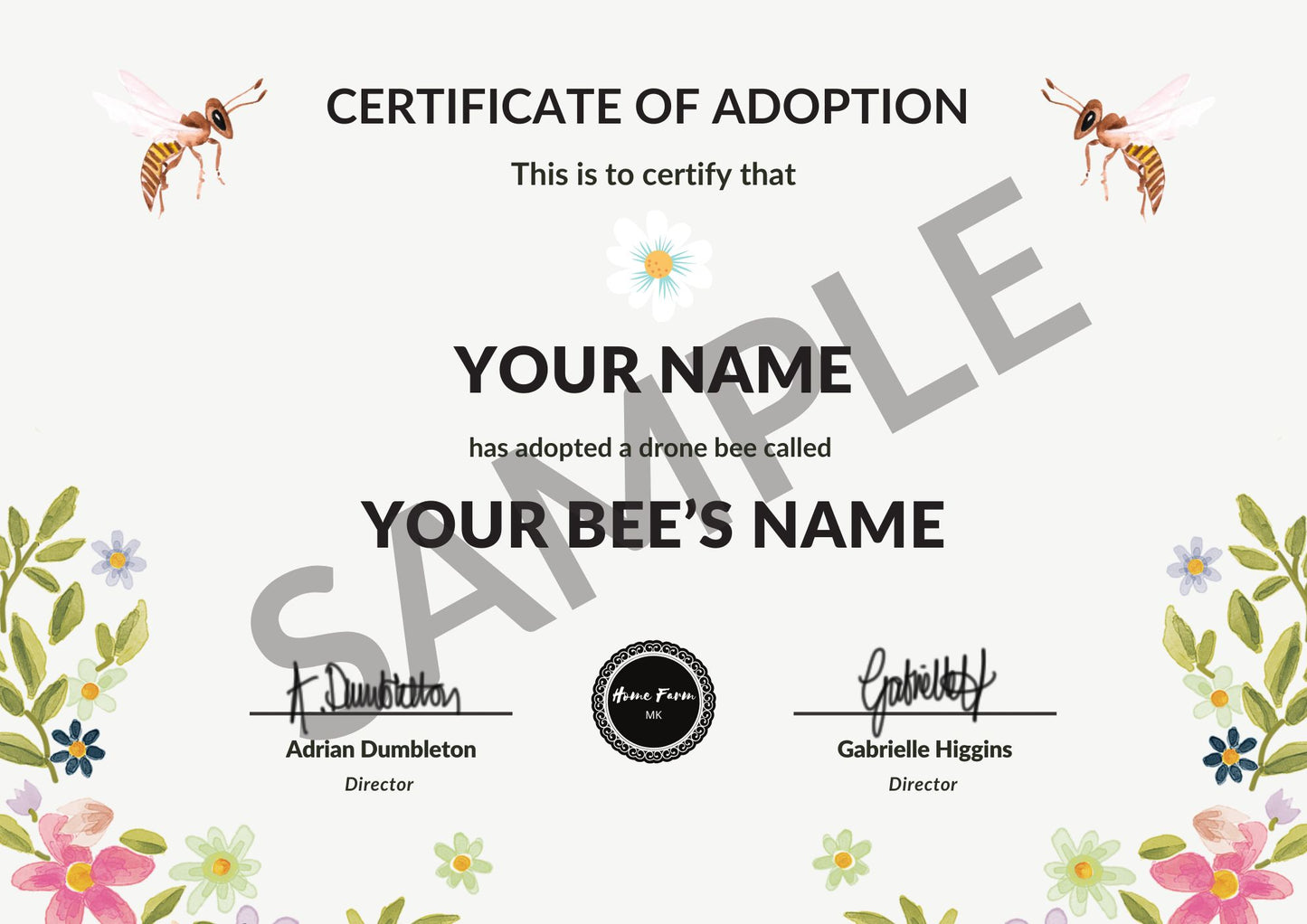
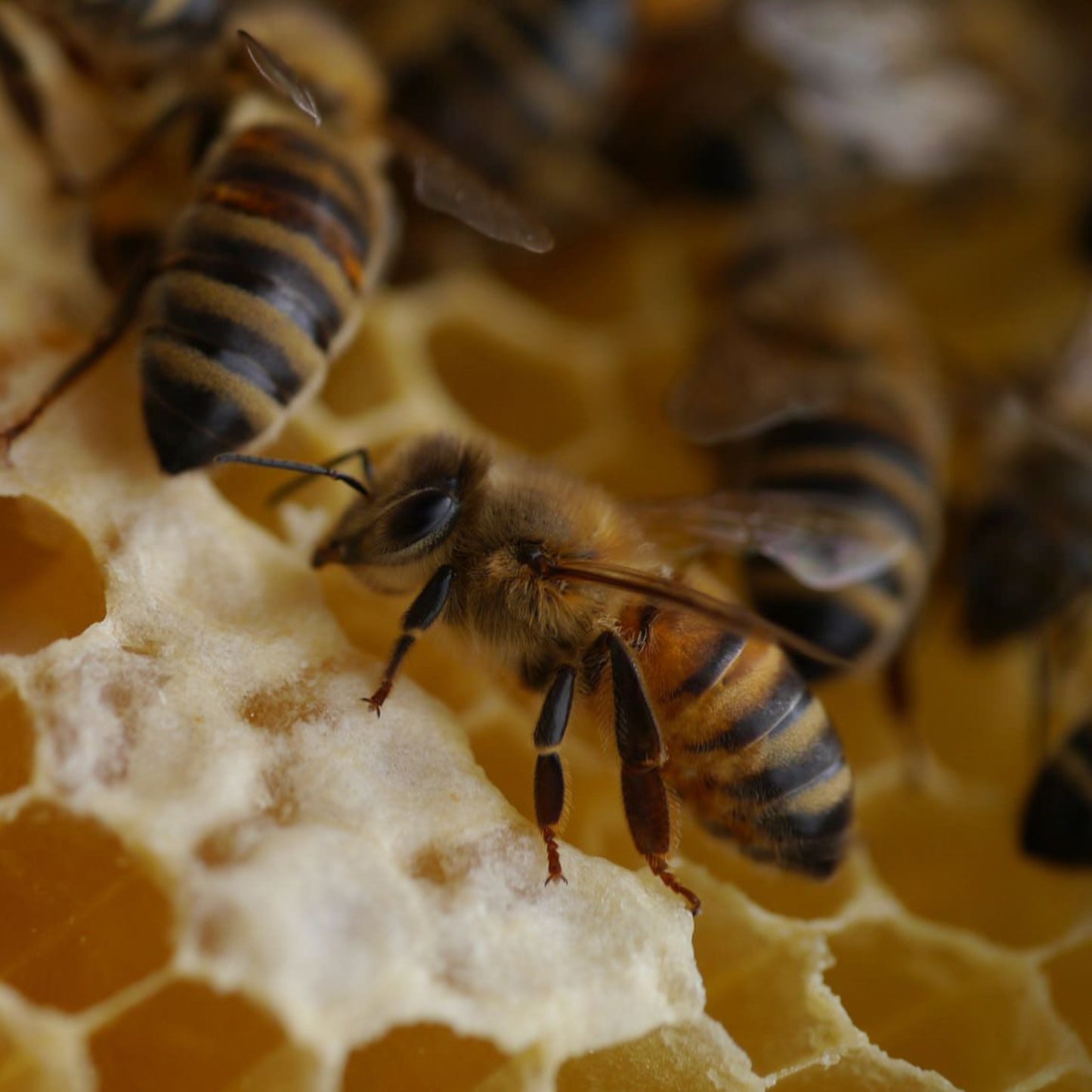
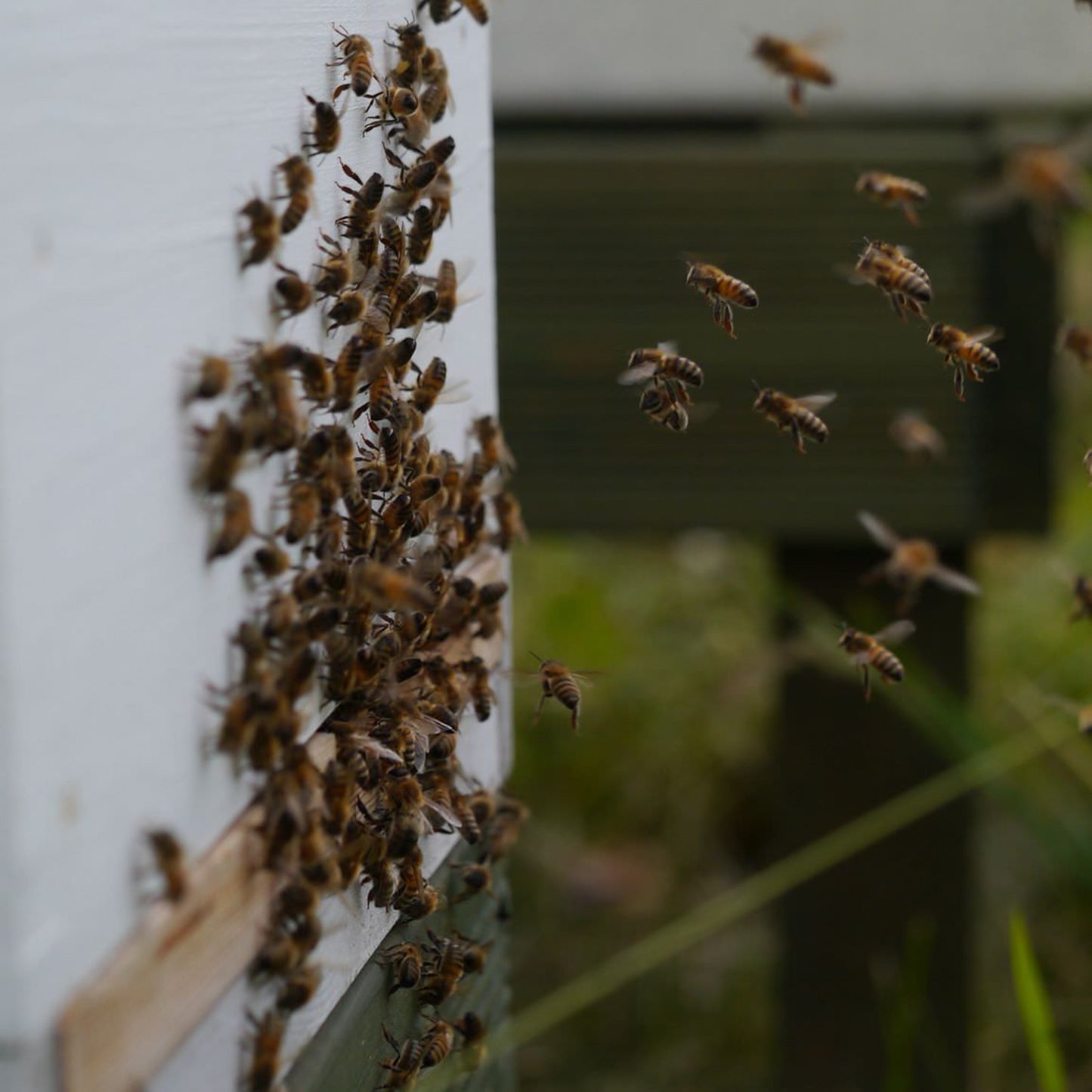
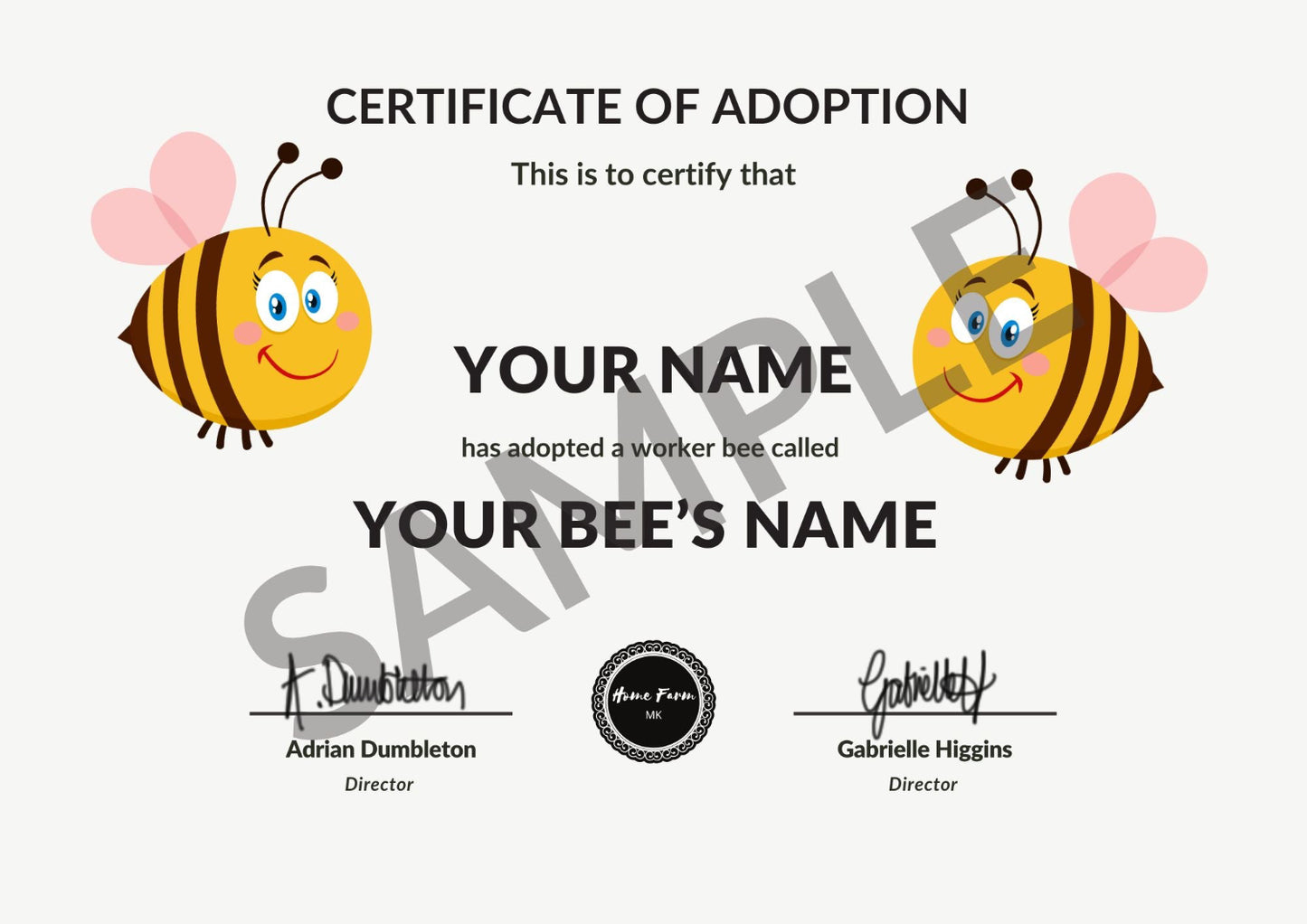
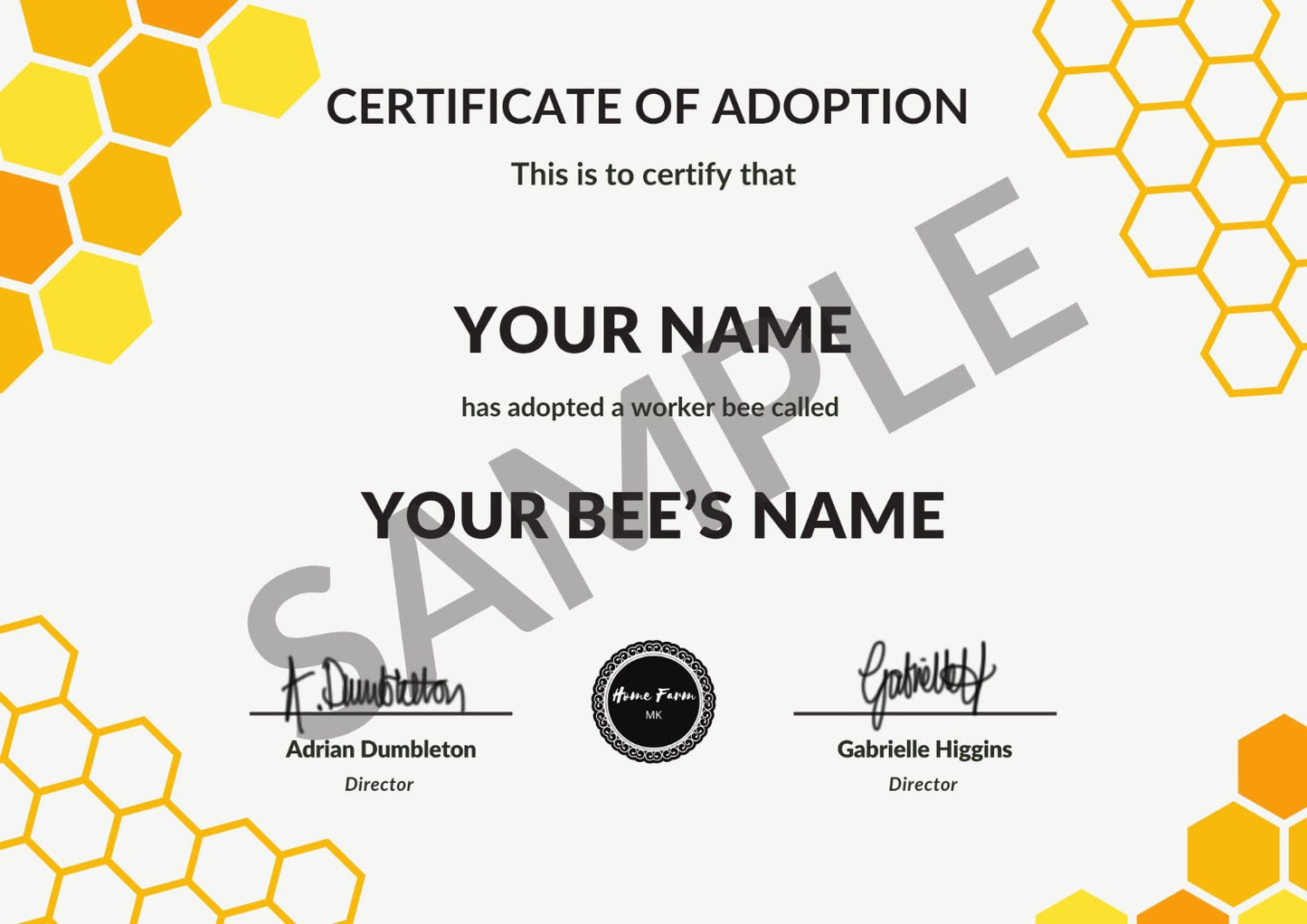
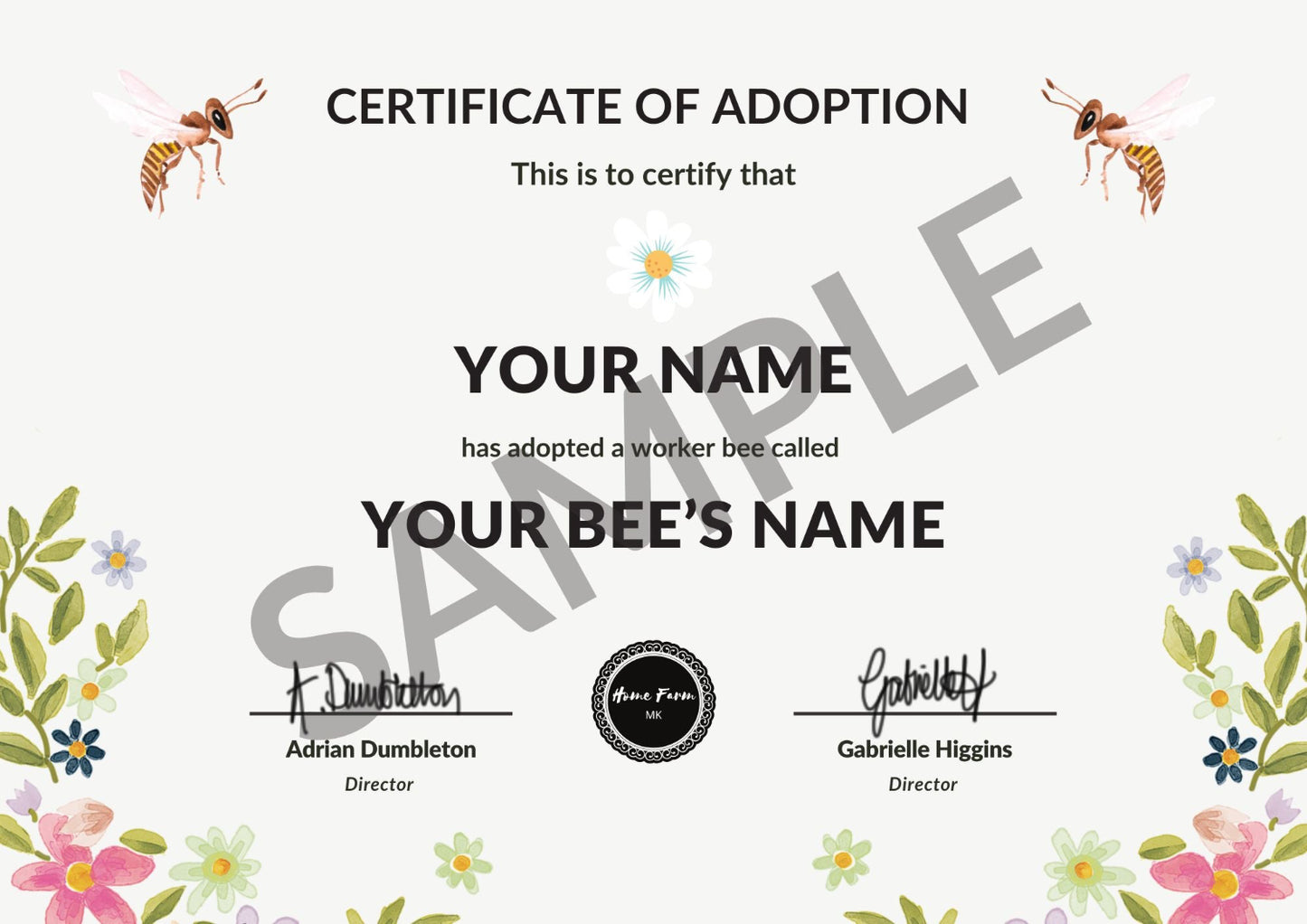
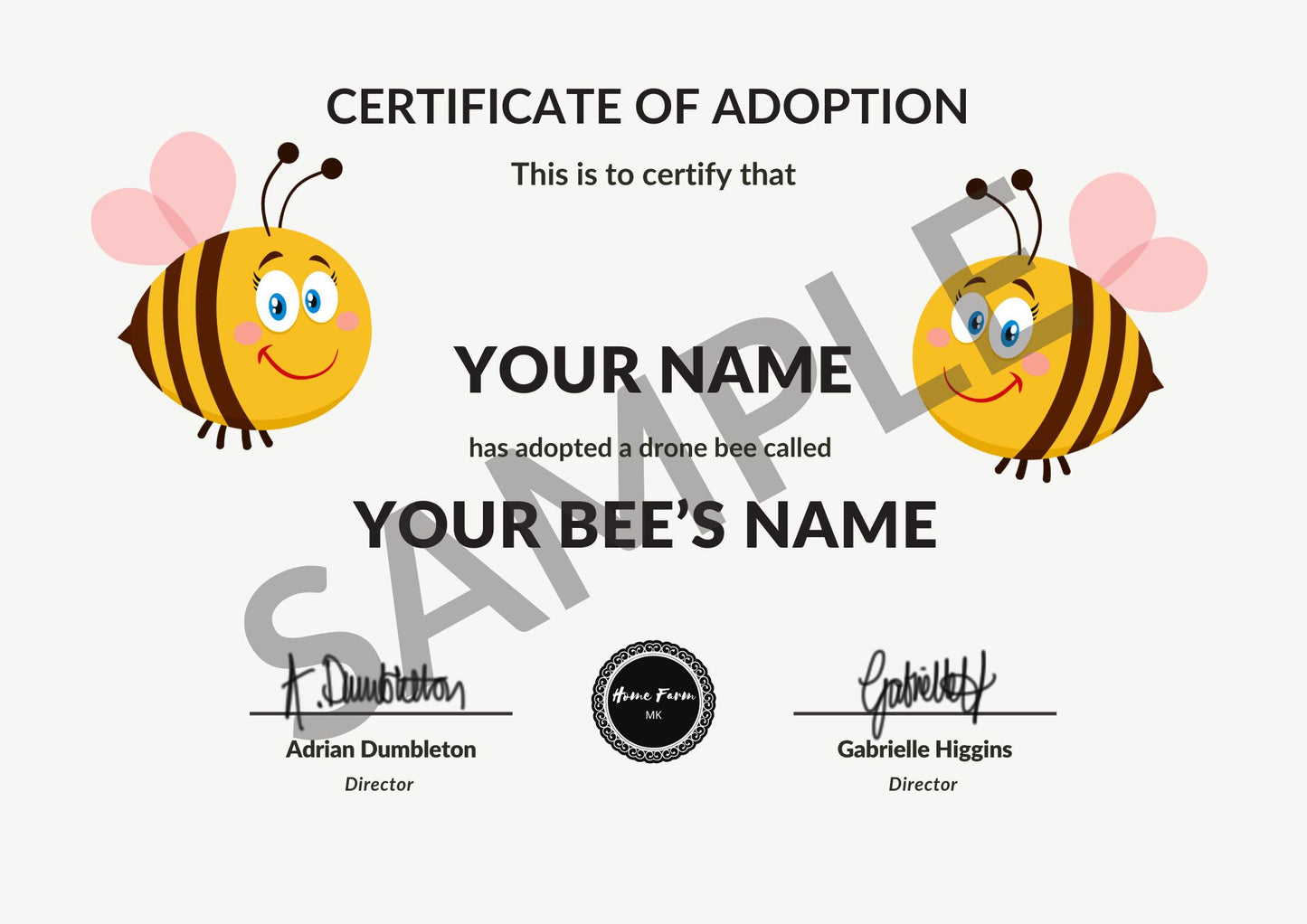
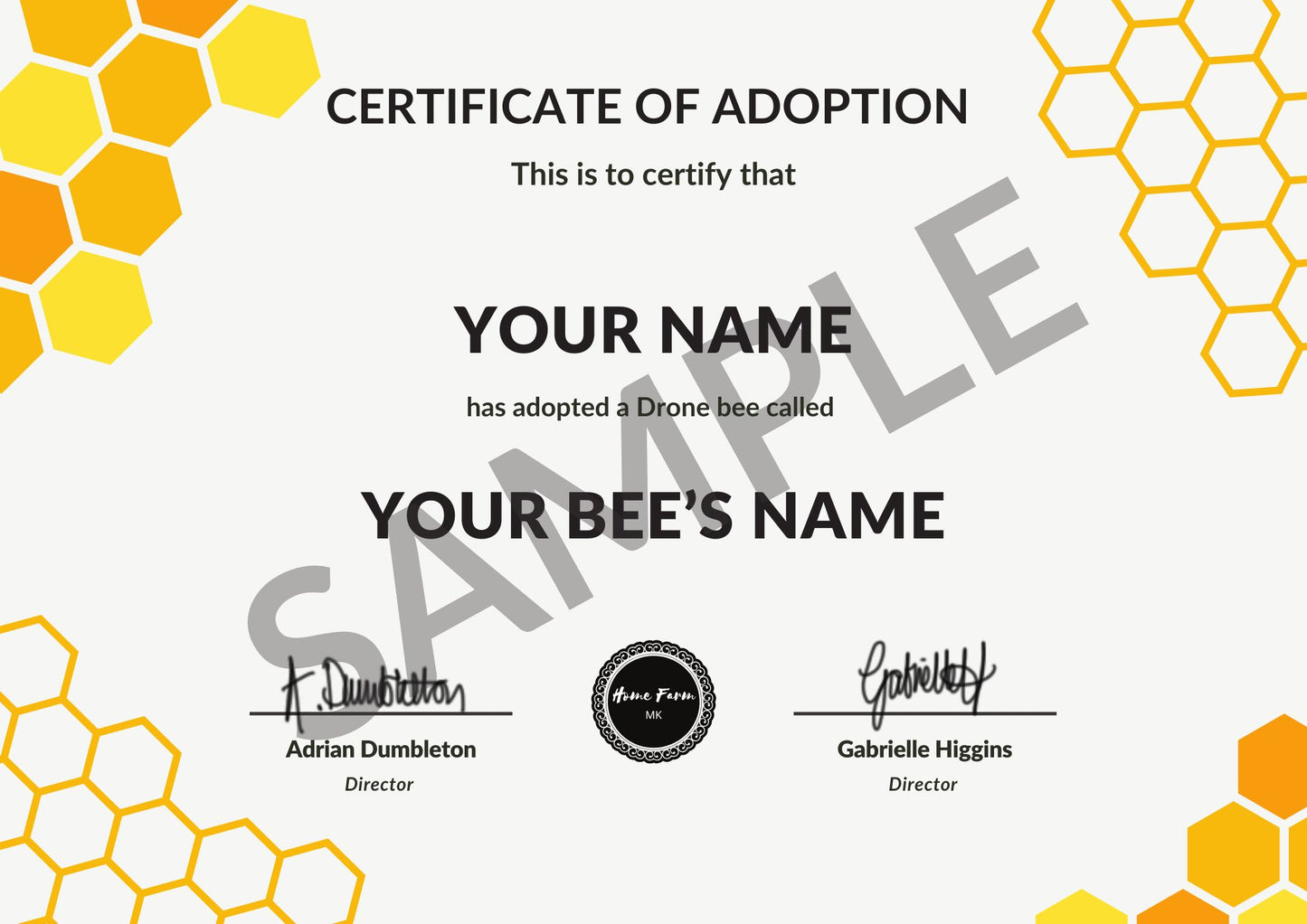
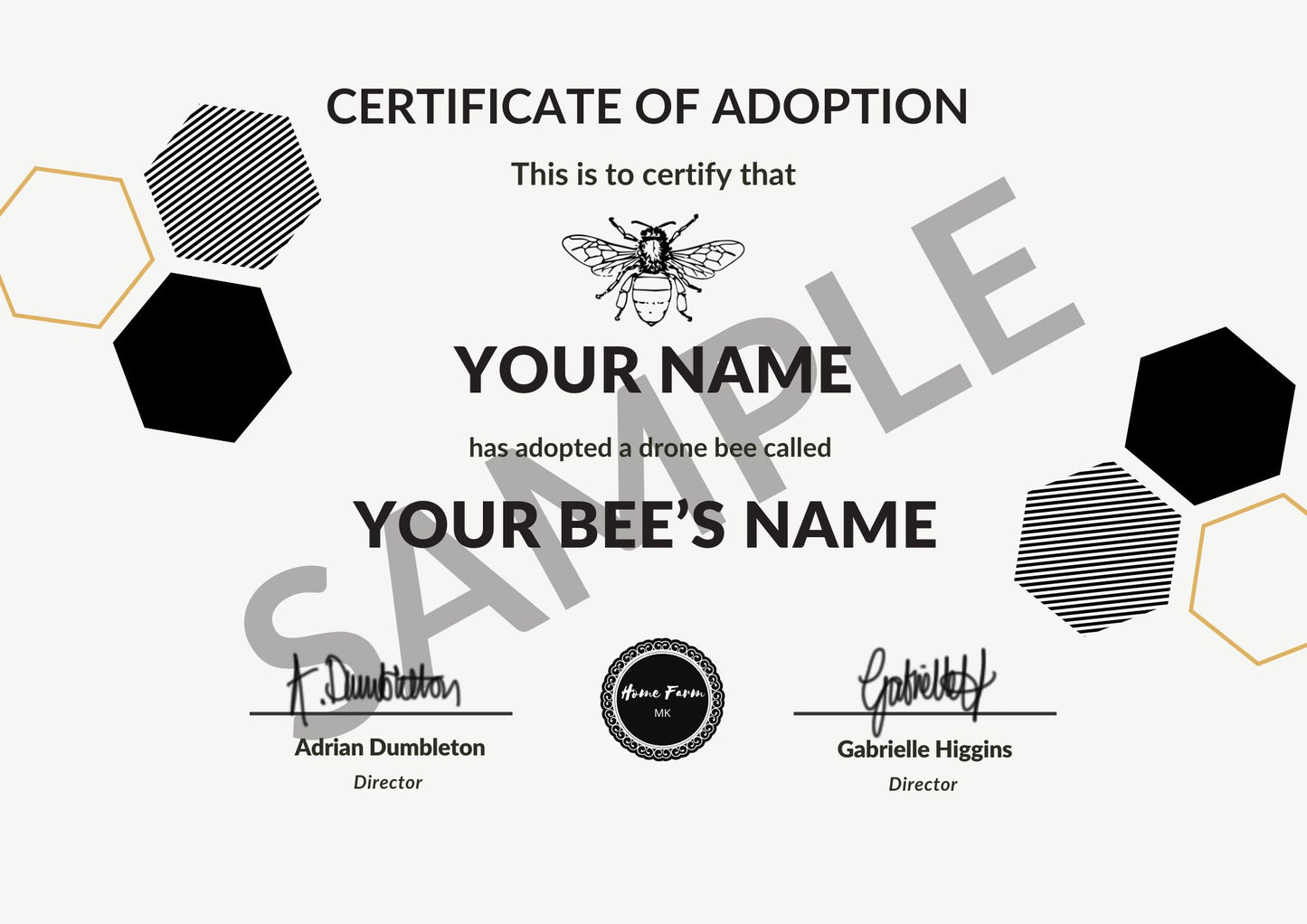
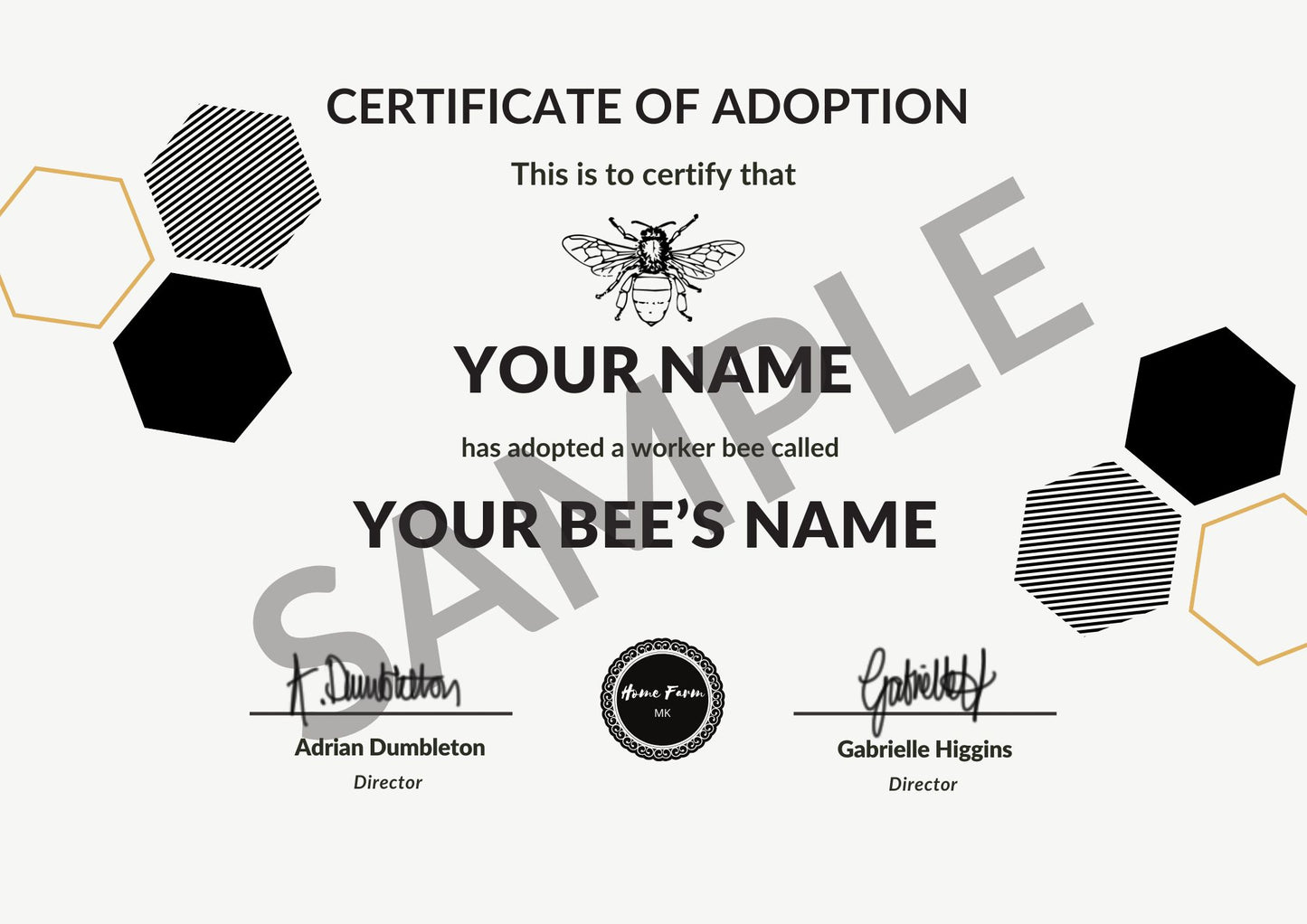
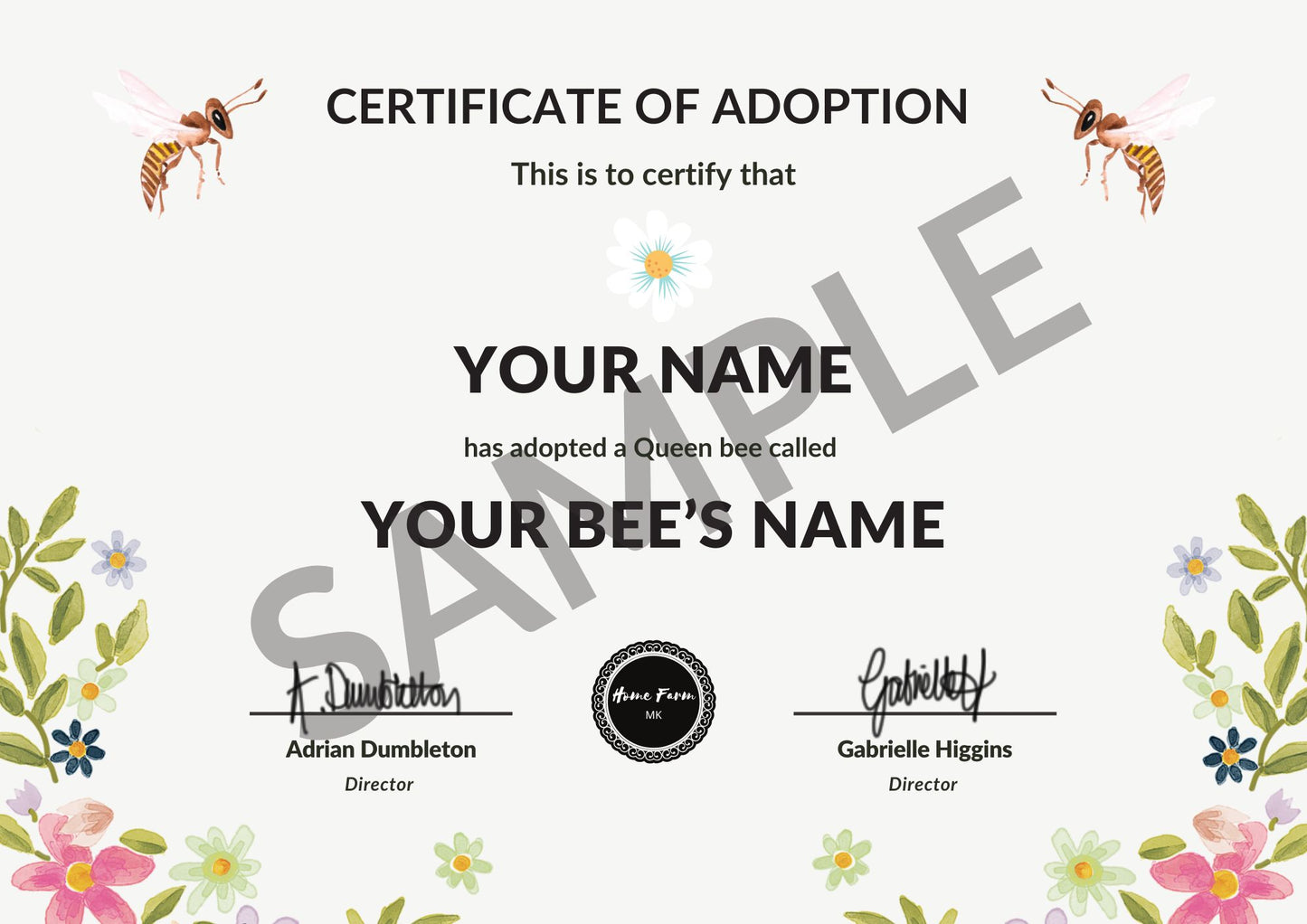
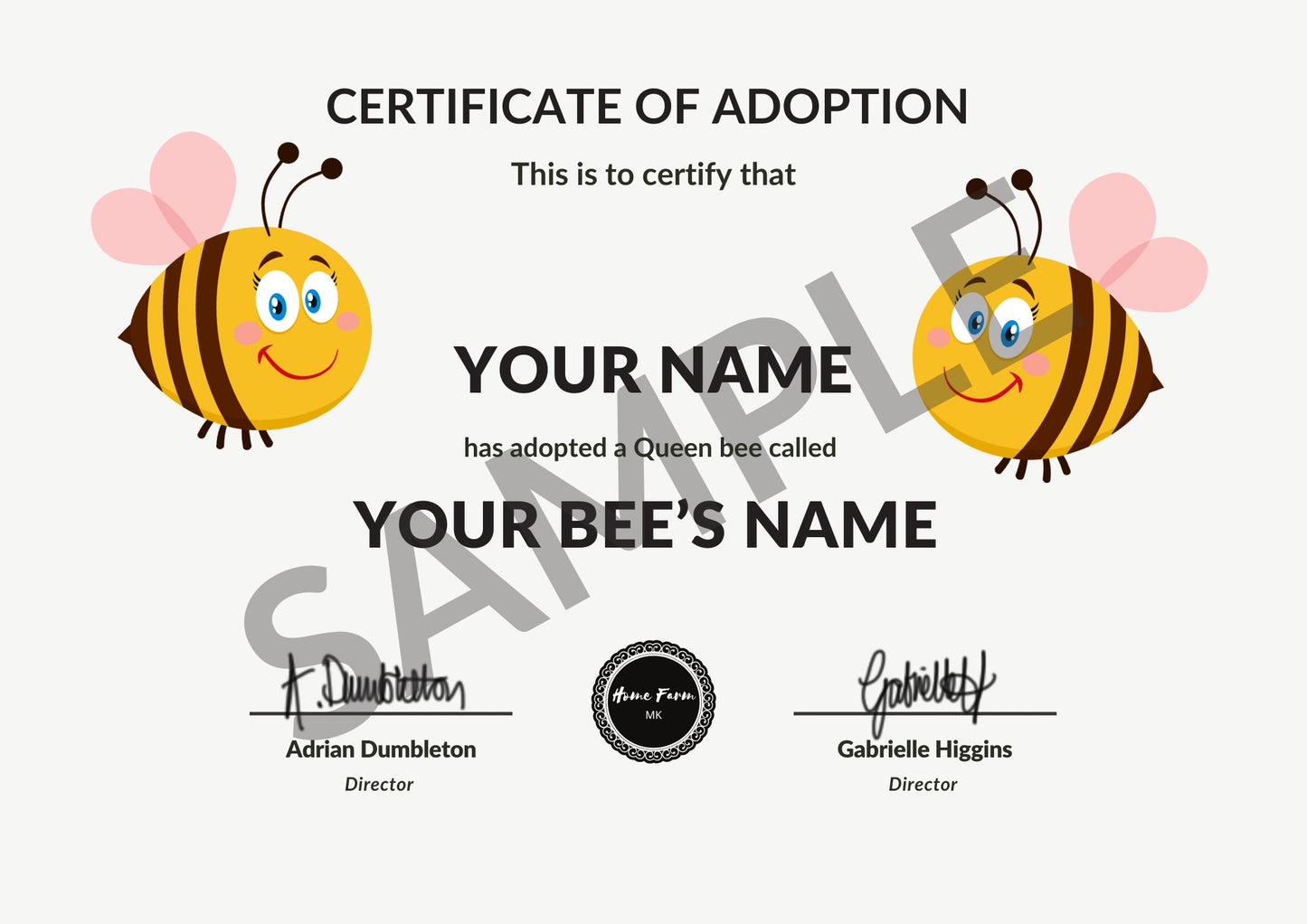
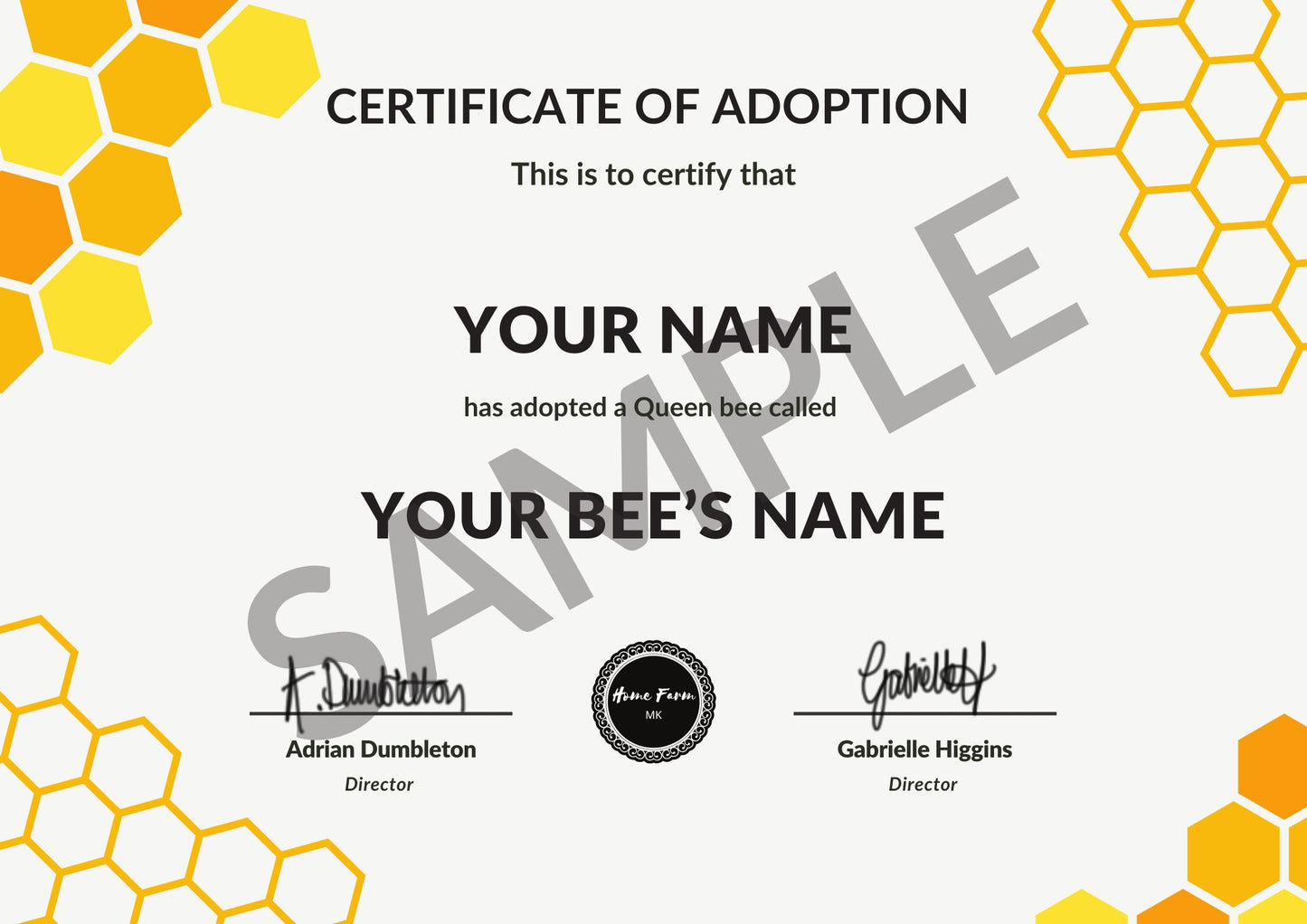
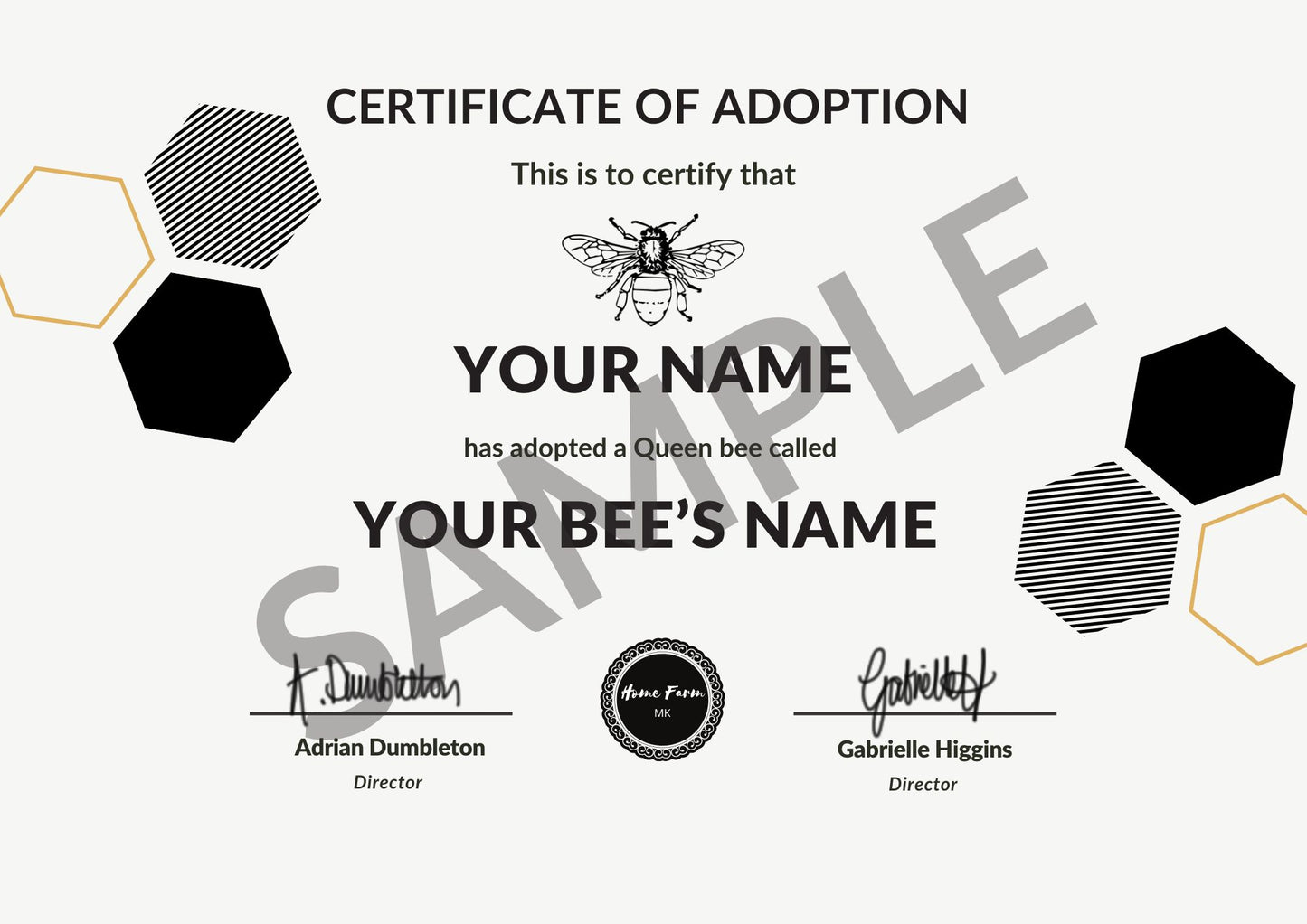
Wonderful thing to do, and a smashing gift which always makes the recipient smile! Keep up the good work.
Everything is great
I would have liked to see a honey pot or beehive on the certificate and maybe a slighty larger Home Farm Logo .... The Certificate is a good idea to encouage young children to become interested in helping our bees survive and the work they do to produce honey. Its good having a local farm to produce honey too. Look forward to purchasing some local honey soon.


